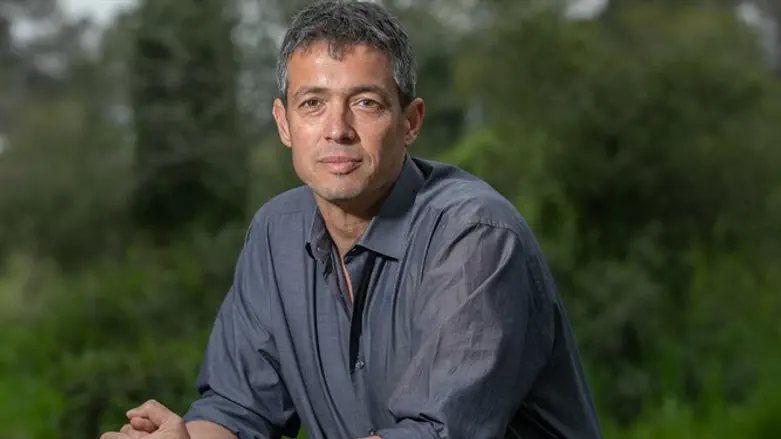
According to Communications Minister Yoaz Hendel (head of the Derech Eretz party), it’s either a budget with Binyamin Netanyahu as Prime Minister, or elections that will lead to another person taking the helm.
Hendel spoke with Arutz Sheva on Wednesday, discussing his tenure as Communications Minister as well as the ongoing coalition crisis. He stressed that elections are not being dangled as a threat – rather, they are the automatic consequence of failing to pass the state budget by the cut-off date of December 23. “If the budget isn’t passed by then, the Knesset disperses and we go to elections. That’s not a threat – it’s just what will happen.”
According to him, “The State of Israel can’t function without a budget, and the government can’t function without addressing the vital issues of the day – the coronavirus crisis, the economy, and, in my opinion, the breakdown of the fabric of Israeli society. If we don’t know how to address these issues, then there is really no point in continuing with the current government format.”
He added that, “I am one of those people who is working hard to enable the government to survive. And I think that if Netanyahu goes to elections, he’ll be missing a historic opportunity to leave the political stage with a legacy of significant achievements behind him – establishing a national unity government, peace agreements…”
All the same, Hendel appeared pessimistic regarding the chances of the government surviving. “The State of Israel can’t survive for an extended period without a budget, without a government that is functioning, and therefore, there will be elections, and Netanyahu will be replaced. Netanyahu won’t be Prime Minister if elections are held, and he realizes this. The choice is really very clear – it’s either a budget or elections; a stable government or elections. There are no other options.”
Hendel stressed, however, that far from focusing solely on political issues, however engaging, he is fully occupied in his role at the Communications Ministry, dedicated to advancing the fiber-optics revolution in Israel and making progress on high-speed internet. “What we have here now is suited to the year 2010, not to 2020,” he said. “Ten years ago, Netanyahu made a speech in Kiryat Shemoneh and in it, he promised that within two years, every single Israeli citizen would have access to high-speed internet.” This has yet to happen.
Hendel stresses that high-speed internet has advantages that go far beyond the speed of connection itself. “And it’s not just about downloading videos,” he said. “If you look around the world, high-speed internet and advanced communications infrastructure lead to a three-percent increase in the number of jobs the sector provides, and an increase of one percent in GDP. In Israeli terms, that translates to around NIS 10 billion per year. We need that money, and we need the jobs the technology can provide.
“When I entered my current position,” he added, “I was stunned to find that the State of Israel is about ten years behind. We’re in 99th place globally when it comes to cellular phones, and we’re supposed to be the start-up nation! So the first thing to do is close the gaps between us and the rest of the world, and then we can continue onward and move into a leading position.”
Moving back to politics, Hendel was asked whether he was considering joining forces with Yamina party head MK Naftali Bennett in the event of new elections. “We have a good relationship,” he replied. “We see eye-to-eye on many things. I’ll also take this opportunity to wish him a speedy recovery. What I do predict is that in the coming Knesset, if elections happen, the right wing will undergo a transformation. I belong to the liberal right wing, and that’s where I intend to remain.”
However, when asked what he thought about running on a joint list with MK Betzalel Smotrich, head of the National Union party, and currently part of Yamina’s slate, Hendel was less enthusiastic. “I admire Betzalel Smotrich very much,” he began, “for everything he has achieved. But there are significant differences in the way we see issues of state and religion. In any case,” he added, “right now I’m busy working to advance the interests of Israeli citizens, rather than preparing for elections. All the same, I am also working hard to ensure that Derech Eretz can present an alternative vision and represent those who see themselves as right-wing liberal nationalists.”
Hendel noted that in the area of communications alone, there is ongoing discrimination against the residents of Judea and Samaria, a situation that he decries. “They deserve the same level of service, and should have the same rights as any other Israeli citizen,” he said. “One of the things I discovered in my current position is that when it comes to the settlements, there is no proper regulation or enforcement of the pertinent laws. If you need a technician to come and fix a malfunction, he either comes out of the goodness of his heart, or he doesn’t. But as far as I am concerned, the residents of Eli, Be’er Milka, Efrat, or the Golan should all receive the same level of service.”
